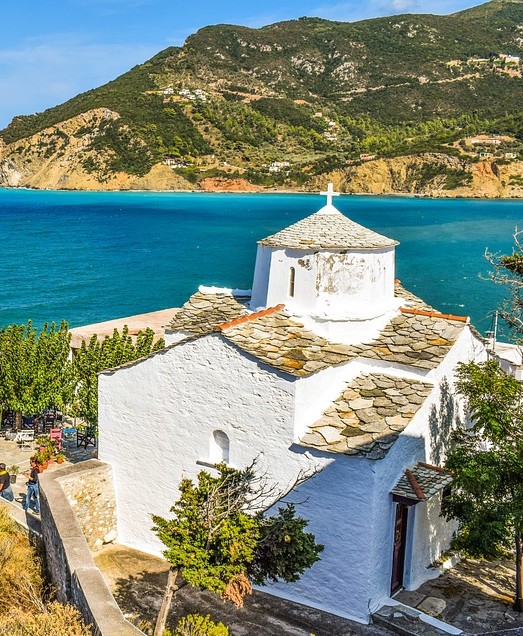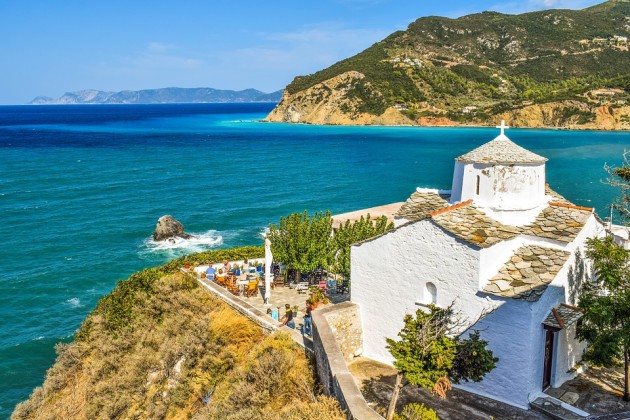
The Patriarchy-Free Paradise of “Mamma Mia!”
 This piece contains spoilers for Mamma Mia 2: Here We Go Again. Not a spoiler: you’ll laugh, you’ll cry, you’ll dance poorly to ABBA.
This piece contains spoilers for Mamma Mia 2: Here We Go Again. Not a spoiler: you’ll laugh, you’ll cry, you’ll dance poorly to ABBA.
Ten years ago I wandered into a movie theater on a hot summer weekend and was surprised to fall in love with the bell bottoms and thudding beat of ABBA-musical-turned-Meryl Streep vehicle “Mamma Mia!”. At the time, I was especially charmed to discover the “feminist heart beneath its cheesy 70s kitsch exterior”—given that the movie hinges on woman’s freewheeling sexual past without shaming her for it.
A lot has changed in a decade; whereas the original “Mamma Mia!” passed skeptical critics by, only to become a smash hit with audiences, its long-awaited sequel now flows into the culture with the natural ease of olive oil in a Greek dish. In the era of female-driven shows like “Crazy Ex-Girlfriend” and “Jane the Virgin” that combine elements of camp, fantasy and genre with sensitive exploration of women’s lives, viewers are primed to enjoy this kind of entertainment unironically, while a more open-minded group of critics are bolstering their pleasure with praise.



